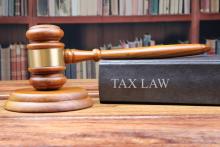Industry Insights on Connecting Underserved Communities - Episode 604 of the Community Broadband Bits Podcast

In this special episode of the podcast, Chris shares a segment from our Connect This! show, featuring insights from industry leaders Robert Boyle, Travis Carter, Kim McKinley, and Blair Levin.
The discussion delves into the impacts of the Affordable Connectivity Program (ACP) and the Emergency Broadband Benefit (EBB). These programs have been instrumental in providing internet access to millions of low-income families, and our guests share their experiences and perspectives on their successes and challenges.
The episode explores the complexities of funding and future efforts to connect underserved areas, with a particular emphasis on rural communities. The conversation highlights the financial strategies and incremental approaches needed to efficiently expand broadband infrastructure. Travis discusses USI Fiber's decision to self-fund the ACP to ensure continued service for their customers, emphasizing the importance of sustainability and low churn rates.
Blair provides a detailed account of his testimony before Congress, addressing questions from policymakers like Ted Cruz. This segment offers a critical look at the political and legislative aspects of broadband funding and the potential for future investments to bridge connectivity gaps.
For more information on Connect This! and to find previous episodes, please visit our website at connectthisshow.org
This show is 54 minutes long and can be played on this page or via Apple Podcasts or the tool of your choice using this feed.
Transcript below.
We want your feedback and suggestions for the show-please e-mail us or leave a comment below.
Listen to other episodes or view all episodes in our index. See other podcasts from the Institute for Local Self-Reliance.
Thanks to Arne Huseby for the music. The song is Warm Duck Shuffle and is licensed under a Creative Commons Attribution (3.0) license



